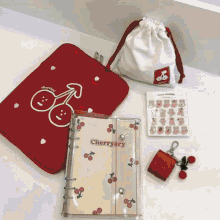Black or white? Right or wrong? Conservative or liberal?
Introvert or extrovert? Minimalist or maximalist? Early birds or night owls?
Image Credit: Phillip N from Unsplash
There are all examples of polarization—the extreme ends of a spectrum that we end up forcing ourselves to fall under to belong. When in reality, most people often fall somewhere in the middle, and that is the main problem with polarization. Looking at only the black and white leads you to miss out on all the beautiful colors in between.
This is something we see in our everyday lives, not just in politics, so it is time we all understood it and decided where we fall on the spectrum of polarization.
Let us slide into your dms 🥰
Get notified of top trending articles like this one every week! (we won't spam you)What Is Polarization?
Polarization, simply stated, is the division of opinions or beliefs into two starkly contrasting ends. It is like saying something is completely right or wrong, you are either a straight-A student or a failing student and other such examples.
Polarization is everywhere in the media we consume through social media algorithms, for example. These are designed to show you more of the things you like and agree with, which creates this echo chamber where we keep hearing our own beliefs again and again, further reinforcing a specific opinion and leaving no room for others. Over time, this creates a distorted view of the world where the middle ground feels invisible or irrelevant.
But what about things that fall in the middle, like being a B student or an occasional A student or being wrong for the right reasons?

Take the Quiz: What's your Pinterest field tells about you
Your Pinterest field shows your Personality
Why Are We So Quick To Be So Divisive? Where Does It All Being?
I think this all starts from the first time we’re told that we’re doing something wrong. “Don’t eat this!”, “Don’t go there!”, then later at school when there are only right or wrong answers. We are made to live in a polarized world where answers are either wrong or right, people are good or bad, and everything is either black or white.
Image Credit: Philippe Leone from Unsplash
Think about when you’re in school, maybe just first grade, raising your hand up and giving a half-right answer, only to be told you’re wrong. That sting stays with you, and over time, it teaches us that being wrong is something to be avoided at all costs—even if being wrong is part of learning.
When this becomes natural for us, we don’t think much about quickly doing the same when faced with real-world issues. Agree with someone or cancel them, right?
The Polarization Problem: The Importance Of Living In The Middle Ground
I’m not saying that having opinions is wrong, or that you can’t disagree with anyone, because I have opinions too and I disagree with people too (a lot!).
But, think about this: if you disagree with people, they disagree with you too, so they probably think the same things you’re thinking. More often than not, people do have reasons for having the opinions they do, so maybe it's not completely black, and maybe you agree with some of their ideas, and that is your grey area, ignoring this means that you ignore a large part of everything in the whole world because honestly, nothing can ever be completely white or black. The purest of things have some wrong element, and the most evil things have a sliver of lightness in them.
Image Credit: Justus Menke from Unsplash
Take this photo, for example. There are three versions of the same image. It looks pretty in all the versions.
But the first one, there are so many details that you miss. Did you spot the second shopping cart? Or the pattern on the wall? That is what you miss out on if you look only at the extreme sides of every spectrum in life. As you start to see the grey area and colors in life, you get a much more holistic view of all that we are. Living in the grey gives us space to grow, learn, and empathize. It allows us to hold two ideas at once, to see the humanity in people we disagree with, and to adapt our beliefs when we learn new things.
So, how do we begin to live in the grey? It starts by listening. Genuinely listening.
Instead of preparing a counterpoint in your head, ask yourself: “Why might this person believe that?” Try reading articles or watching videos you don’t immediately agree with—not to be convinced, but to understand. Talk to people with different life experiences. Ask questions. The goal isn’t to change your mind, but to widen it.
Stop Polarizing Everything!
Polarization does not help us. Of course, sometimes black-and-white thinking helps—like knowing not to touch a hot stove or to stand against clear injustices. But most of life doesn’t fall into such clear categories. Even though you can and should have your personal opinions, polarising an opinion just because it’s different to yours only makes you blind to the multilayered nature of the complexities of the human mind and the way it perceives the world around it.
Image Credit: Alina SYRO from Unsplash
So, yes, we need to stop looking at ONLY the extremes. We need to balance everything and make sure we understand the different perspectives that are significant to understanding a particular issue.
After all, who decided that life had to be one way or another? What if the richest truths lie not in the extremes, but in the quiet, complex, colorful space in between? So, the next time you find yourself choosing a side, pause for a moment. Ask yourself: Is there something I’m missing in the middle?














